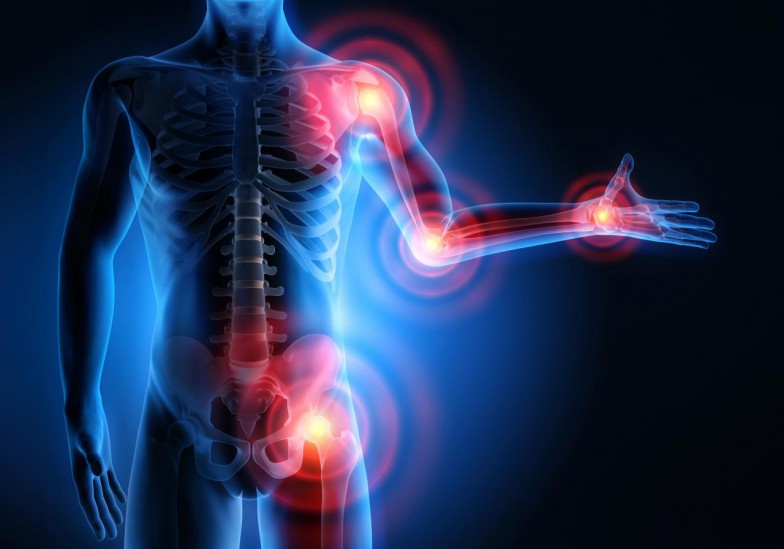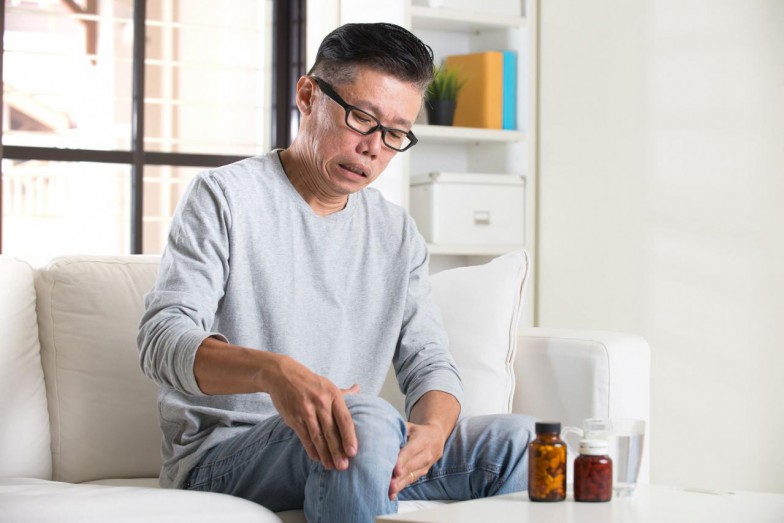
When’s the Right Time to Start Thinking About Joint Recovery?
Joint pain and stiffness can creep up on anyone at any age. Here’s when you need to start thinking about joint recovery.
It’s never too late or early to start thinking about joint recovery, supplements, and living a healthier lifestyle.
It’s important to consider all aspects of your health whether you’re in your 20s, 30s, or well beyond your 40s.
Hips, joints, and supplements are concerns limited to people over the age of 40, right? Unfortunately, this might not be the case. Research has shown that the sooner you can improve your joint health, diet, and nutrients, the less likely you will be to suffer from painful symptoms in the future. So, when’s the right time to start thinking about joint recovery, and what steps can you take?

What are joints?
Let’s start with the basics: What are joints? Joints are the connections between two bones. Joints consist of multiple elements, including cartilage, synovial membrane, ligaments, tendons, bursas, and synovial fluid.
Without joints and their components, you wouldn’t be able to bend your elbows, turn your head, or throw up a peace sign. However, joints can become damaged as you get older, suffer from injury, or gain weight. This wear and tear can lead to arthritis and other painful symptoms — that’s why it’s crucial to take care of your joints and their surrounding structures, so you can live a healthy lifestyle.

What affects joint health?
Multiple factors can lead to joint discomfort in the hands, feet, hips, knees, or spine. The pain is typically described as tight, burning, pulsing, or “grating” sensations. Some patients report symptoms that come and go, while others suffer from chronic pain.
Poor joint health might be more likely in specific individuals, including:
- Individuals with previous injuries to a joint
- Individuals who repeatedly use or overuse a muscle
- Individuals with arthritis or other chronic medical complications
- Individuals who suffer from depression, anxiety, or stress
- Individuals who are overweight
- Individuals with poor health
- Individuals over the age of 50
Arthritis is one of the most common causes of joint pain. There are various types of arthritis, but the most common is osteoarthritis (OA) and rheumatoid arthritis (RA). OA is ubiquitous and is caused by cumulative wear and tear from age or injury. On the flip side, RA is an autoimmune condition that affects the joints, and the exact cause is unknown.
When should you start thinking about your joints?
You might be in for a world of hurt if you think taking care of your joints is limited to being a senior citizen. However, it’s never too late or too early to start thinking about your joint health. Creating positive health habits in your 20s and 30s might help offset wear and tear as you get older.

Tips for joint health
Protecting your joints, cartilage, and surrounding structures is vital to living a long and mobile life. Thankfully, there are tips and tricks you can implement to improve your joint health, regardless of your age.
- Maintain a healthy weight: It’s no surprise that carrying extra weight can negatively impact your joints over time. Your knees, hips, and back work together to support your body weight. The more weight these joints carry, the more damage they suffer from. Maintaining a healthy weight is one way to improve your joint health and prevent excess wear and tear.
- Take glucosamine and chondroitin supplements: One way you might be able to improve joint health is by supplementing glucosamine and chondroitin. These nutrients play a vital role in easing joint pain and maintaining optimal joint performance, as they’re natural building blocks for healthy joint cartilage. Although research is still inconclusive, these nutrients may slow the progression of osteoarthritis, decrease painful symptoms, and improve function. Be sure to consult your primary care physician before adding any supplements to your diet.
- Practice exercise and weight training: Regular exercise and weight training are essential for joint health. Without strong muscles, your knees, hips, and spine have to do more work, causing unnecessary wear and tear. Adding in weight training is one way to improve your joint health and prevent complications down the line.
Consider adding two to three days of weight training into your weekly routine, especially if you only do cardio. You don’t have to go overboard: you can lift free weights, add simple exercises, or take a class. The critical part is strengthening your muscles and keeping your joints healthy.
You’re dead wrong if you thought joint recovery was limited to middle-aged adults and senior citizens! Unfortunately, joint pain and degradation can happen to anyone. People as early as ages 25 to 35 should begin considering their joint health by maintaining their weight, eating a nutritious diet, and getting regular exercise. Be sure to consult your doctor before taking any supplements or making significant lifestyle changes.
Why not try an in-home massage to loosen up any stiffness? Download the MOBILESTYLES App today at https://mobilestyles.com/download.






